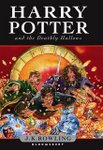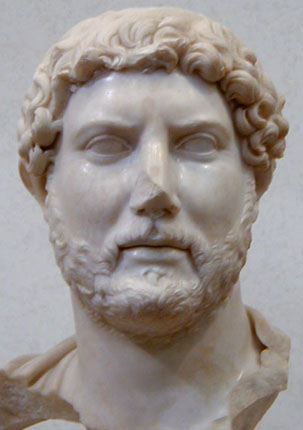 There was a controversy here in England because critics were not allowed to see the new RSC production of King Lear for review until the run was sold out and nearly over. During rehearsals, Frances Barber, who plays Goneril, was riding her bicycle in Stratford when she swerved to avoid hitting a pedestrian and fell down. She ended up needing knee surgery, and the production had to go on with an understudy in the role of Goneril. The RSC didn't want the production reviewed with an understudy in one of the main roles, so reviewers were banned until about two weeks ago. This, I think, was a mistake. First, It made the reviewers grumpy, causing bad press. Not that this matters, since the production is sold out. Second, I can't believe that Frances Barber is vastly better than her understudy. Goneril is really not such a big part, and Frances Barber is not such a great actress. She seems to have two basic settings: nasty and loud.
There was a controversy here in England because critics were not allowed to see the new RSC production of King Lear for review until the run was sold out and nearly over. During rehearsals, Frances Barber, who plays Goneril, was riding her bicycle in Stratford when she swerved to avoid hitting a pedestrian and fell down. She ended up needing knee surgery, and the production had to go on with an understudy in the role of Goneril. The RSC didn't want the production reviewed with an understudy in one of the main roles, so reviewers were banned until about two weeks ago. This, I think, was a mistake. First, It made the reviewers grumpy, causing bad press. Not that this matters, since the production is sold out. Second, I can't believe that Frances Barber is vastly better than her understudy. Goneril is really not such a big part, and Frances Barber is not such a great actress. She seems to have two basic settings: nasty and loud. Having said that, the production was amazing. Ian McKellen is the greatest actor I have ever seen. He's surrounded by some other very good actors, especially in the roles of Edgar and Gloucester, but he had me completely spellbound. First of all, he has the most wonderful voice. At least one critic, crankified by not getting to review it earlier, complained that the production was more about McKellen than Shakespeare, that it was impossible to think of McKellen as King Lear or anything other than England's greatest living actor showing off his great acting. I completely disagree. It seems to me that when you see a play, you are always aware, on some level, that acting is going on. Like any great art—painting or music or a great poem—it's something artificial that somehow gets you to think about what's real. It stimulates feelings that in everyday life are often half asleep. McKellen's performance was great art.
The production passed my two basic tests: it kept my brain engaged throughout, and it made me cry at the end. I should warn you: in one crucial scene, Sir Ian strips off his trousers and exposes his orbs and sceptre. It makes sense. King Lear is stripped down, exposed, as powerless as a naked infant.
One scene I particularly liked was when Edgar, disguised as Mad Tom, leads his blinded father, Gloucester, to what Gloucester thinks is the edge of the cliffs of Dover. Gloucester intends to jump off the cliff. Edgar vividly describes the cliff, although we know there is nothing there and see nothing but the empty stage. Gloucester "jumps" and curls up on the stage. Edgar returns, disguising his voice, and tells Gloucester it's a miracle that he survived such a fall. It's a scene in which nothing actually happens. No cliff, no jump, no death. But so much happens. Edgar makes Gloucester believe. He believes in something that never happened. Something entirely made up becomes a miracle. Well, isn't that what theater is about—the possibility of being changed by the imaginary? Nothing really happens on stage—no one is betrayed, no one dies. It's just what the actors, like Edgar, make up for you. You jump, expecting something to happen, and although you remain safe in your (by this time in the play) increasingly uncomfortable seat, you are briefly given a new life.


1 comment:
So let me get this straight - Sir Ian pretended to be King Lear? He wasn't actually a king? Hmmm...
I saw him play Richard III in London 1991 - simply astounding performance. (It was the "fascist production" that was adapted to film, although the live performance was better).
Post a Comment